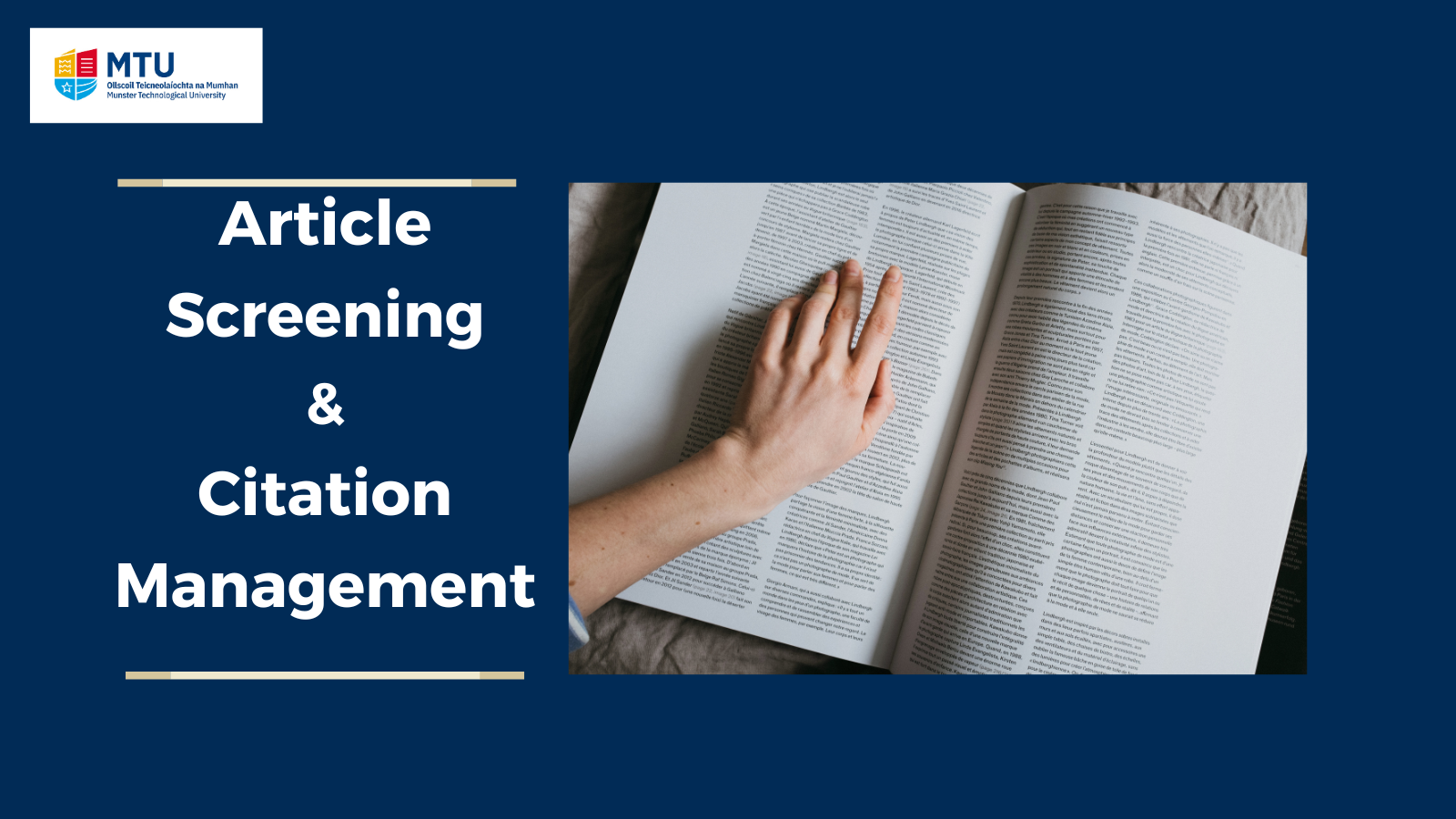
Article screening enables reviewers to remove studies that are not related to the research topic.
The article screening process uses inclusion/exclusion criteria to initially screen the title and abstracts of articles found and determine as to whether these are relevant to the research question.
After carrying this out, the full text articles should then be screened to ensure that those studies suit the eligibility criteria for the systematic review being carried out.
Note: If you experience difficulty accessing the full text of a particular article(s), please remember that the MTU Library can acquire material on your behalf through our inter-library loan service.
Ideally, at least two independent reviewers should be involved in the article screening process, both of whom are subject experts. Where disagreements during the screening process arise, a third party should be introduced.
Note: Visit the Cornell University Library's Guide to Article Screening. This guide provides useful information on how reviewers can remove studies that are clearly not related to the research topic.
There are a number of free and subscription-based resources that are designed to assist during the Systematic Review process. Many of these tools are designed to assist with the key stages of the process, including title and abstract screening, data synthesis, and critical appraisal. Some are designed to assist the review team throughout the entire process, including protocol development, reporting of the outcomes etc.
Rayyan: Rayyan is a web-tool designed to help researchers working on systematic reviews, scoping reviews and other knowledge synthesis projects, by dramatically speeding up the process of screening and selecting studies.
Note: Rayyan offer a subscription based service and a free version for early career researchers.
Covidence: Covidence is an online software tool designed to streamline the process of conducting a systematic review (or a similarly detailed literature review such as a meta-analysis).
You can use Covidence to collaborate with a team of reviewers to screen results (at both title/abstract and full text stages), complete data extraction and work on risk of bias.
DistillerSR: DistillerSR automates the management of literature collection, screening, and assessment using AI and intelligent workflows. From a systematic literature review to a rapid review to a living review, DistillerSR simplifies the Systematic Review process and helps the review team produce transparent, audit-ready, and compliant results.
Excel - Excel is also an option for article screening.
Reference:
The Cornell University Library provides some very helpful resources for Systematic Review Team Members for carrying out a controlled approach to extracting data. The document covers such software packages such as Excel, Covidence, RevMan, SRDR, DistillerSR and many others.
Referencing software will save you a lot of time when carrying out your Systematic Review. Programs like Endnote, Zotero or Mendeley will store and organize the citations collected throughout the review process.They will also allow you to de-duplicate the results and automatically format in-text citations and bibliographies for your final report.
Other suitable Referencing software can of course be used for citation management during your review.
Note: Search results will likely be needed to be exported to either/both selection software or referencing software. As well as that each library database may set it's own limits on how many citations can be exported at any one time, so if you have a large number of results, you may need to export all results in stages.
- The Bringham Young University Library provides an excellent overview of the Deduplication process and differentiates between the Manual Deduplication process and the Automated deduplication process using Referencing Software. View the article at https://guides.lib.byu.edu/systematicreviews/deduplication
Visit MTU Library's Guide to Referencing Software for a useful overview of these free Referencing software programs.